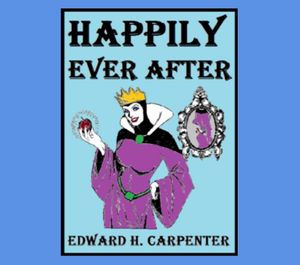In his 1995 book The Construction of Social Reality, John Searle asserts that “institutional facts require language” (76) but is this a sound and valid argument? In this essay I will evaluate Searle’s argument, first by writing it in the standard form and then checking both its validity and its soundness, concluding that while his argument is valid, it is not sound in its current form because Premise 4 can be disproved by Searle’s own example of an institutional fact in his text. I will then give my thoughts on the importance of Searle’s argument, and suggest a way to make it sound.
Searle’s argument in standard form is as follows:
Premise 1. “Language is epistemically* indispensable” (76).
Premise 2. Institutional facts are inherently social therefore they must be communicable, and communication requires a language. (77).
Premise 3. Institutional facts are complex, so their representation requires a complex system of representation, “and such complex systems of representation are languages” (77).
Premise 4. Institutional facts “persist through time independently of the duration of the urges and inclinations of the participants in the institution” (78).
Conclusion 1. Institutional facts require language to exist.
Searle’s argument is valid* because his premises and conclusion are set up such that if the premises are true, the conclusion must also be true. But is it a sound argument? It is not, because Premise 4 can be disproven by considering the example that Searle himself gives, that of “Christmas” (78).
If Premise 4 were true, Christmas should have persisted throughout time “independently of the duration of the urges and inclinations of the participants in the institution” (78). The participants of the institution, in this case, would be Christians.** But Christianity as an institution pre-dated the institutional fact of Christmas by over 300 years (Apostolos-Cappadona 610). The celebration of Christmas became an institutional fact when the urges and inclinations of the early Christians supported it; and has endured this long as a result of those urges; it could easily disappear if a future generation of Christians were influenced by other inclinations.
It is not just Christmas; we can apply the same test to many of the institutional facts that we’ve examined in this course, such as a U.S. dollar bill. No one can take away the brute fact that it is a piece of paper, but the institutional fact that it is money has only existed since 1862, because the American people had the urge to adopt a paper currency. Should future inclinations lead Americans (or the global economic community) to adopt a fully-electronic monetary system, or to return to gold or some other standard, then the institutional fact of the U.S. dollar bill as being money will cease to exist.
I agree with Searle about the nature of the relationship between language and institutional facts; additionally, I believe that it is an important argument for Searle to make effectively. So, given that his argument appears unsound as it is currently constructed, how would I fix it?
The simplest remedy would be to remove Premise 4 from the argument entirely, since it does not seem to add any value in creating a linkage between institutional facts and language. Were this to be done, Searle’s argument would become sound as well as valid.
Author's Notes:
This was originally written as a short paper for a philosophy class on metaphysics at the University of Melbourne. I am planning to do a future post to explain more generally Searle's concept of "institutional facts" in the context of the underlying "brute facts."
* Philosophy teachers say "write with short sentences and plain words" and then make you read and discuss people who say "epistemically indispensable" instead of "necessary for considering the concept of 'knowledge'."
** In philosophy, an argument is considered "valid" if the conclusion would be true if all the premises were also true. But an argument is only "sound" if it is valid and the premises are true. So, for example, if you had the argument structured:
Premise 1 - Donald is a duck.
Premise 2. All ducks are mammals.
Conclusion - Donald is a mammal.
Such an argument would be valid - the conclusion would be true if all the premises were also true. But it is not a sound argument because Premise 2 is not true. On the other hand, the following argument would be both valid and sound:
Premise 1 - Donald is a duck.
Premise 2. All ducks are birds.
Conclusion - Donald is a bird.
*** The current institution which supports Christmas now includes many non-Christians, and the early Christians would probably be confused by modern celebrations of the event - in fact, Oliver Cromwell attempted to ban the holiday in Puritan England, so debauched did he and his peers find the contemporary celebrations in the 1600s. But that's a post for another time!
Works Cited
Apostolos-Cappadona, Diane, et al. “Christmas.” Religion Past and Present, Leiden, Koninklijke Brill NV, 2011.
Searle, John R. The Construction of Social Reality. Free Press, 2010. Kindle file.






